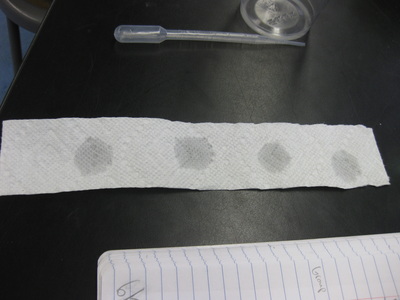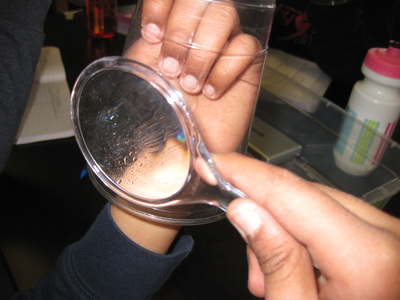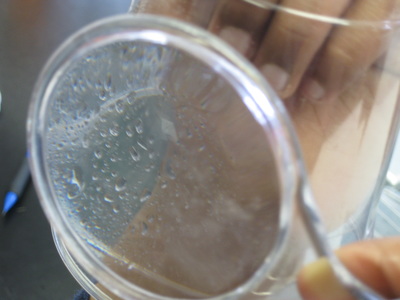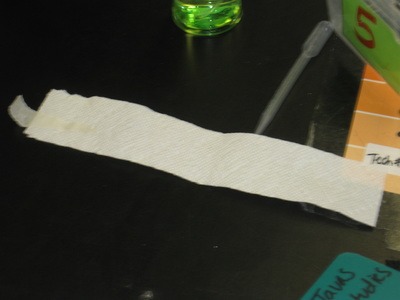As fifth graders continue to check in on their lakes, they're starting to make some connections to our driving question, "Why are these ships in a field?" By examining water droplets of even the tiniest sizes, students saw that these drops "disappeared." If these drops of water are disappearing, is it possible that the millions of drops of water in the sea where the ships were located could have disappeared, too? How can we explain this?
Many students suggested that the water on the cups and the paper towels evaporated, but their understanding of how evaporation works is unclear. How do we know that the water wasn't absorbed by the cup or the paper towel on which the water was placed? We'll have to figure out of a way to see if we're right one way or another...
Stay tuned...we'll have to figure out a way to "catch" those tiny water droplets that seem to be floating around in the air.
Many students suggested that the water on the cups and the paper towels evaporated, but their understanding of how evaporation works is unclear. How do we know that the water wasn't absorbed by the cup or the paper towel on which the water was placed? We'll have to figure out of a way to see if we're right one way or another...
Stay tuned...we'll have to figure out a way to "catch" those tiny water droplets that seem to be floating around in the air.




 RSS Feed
RSS Feed